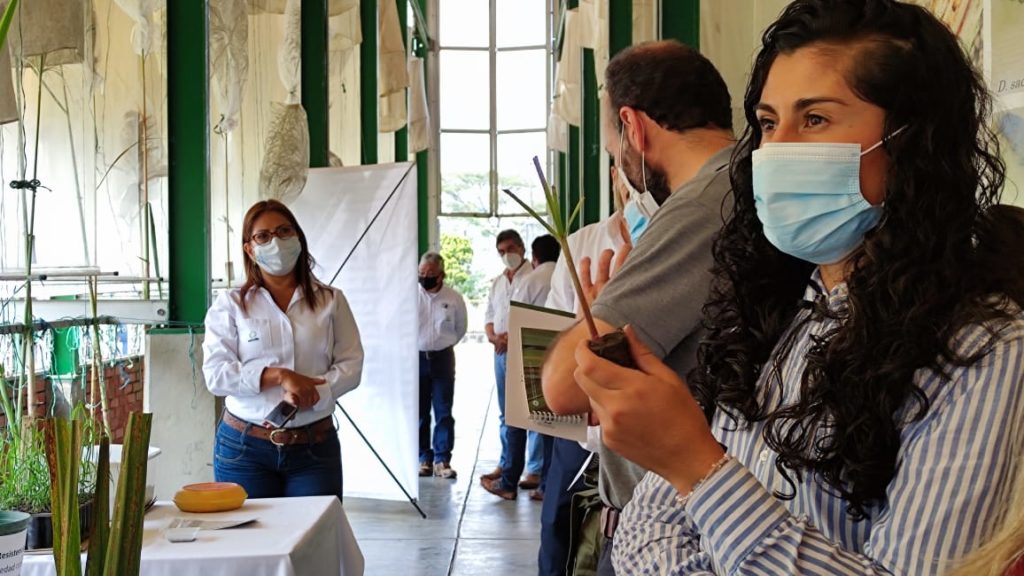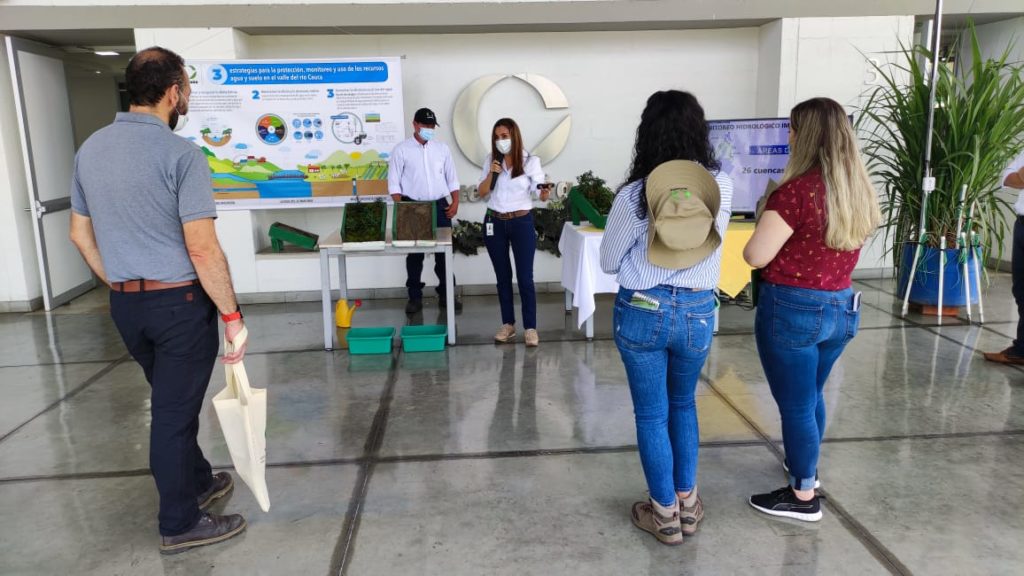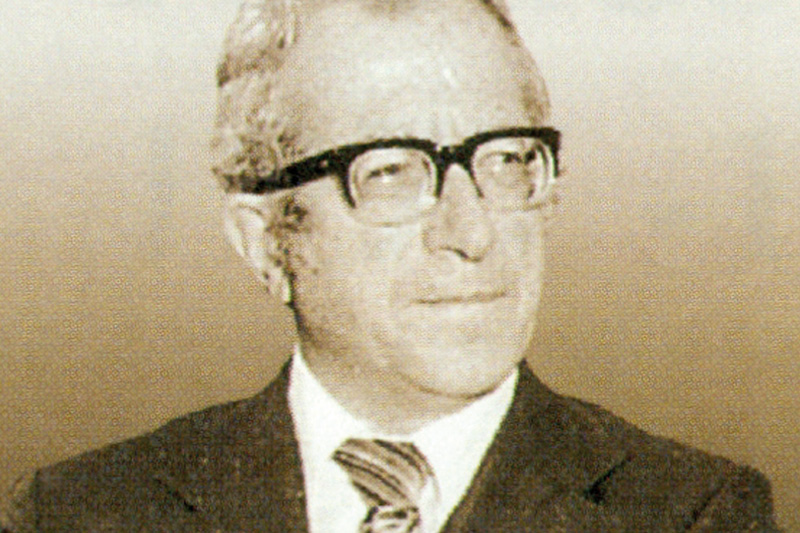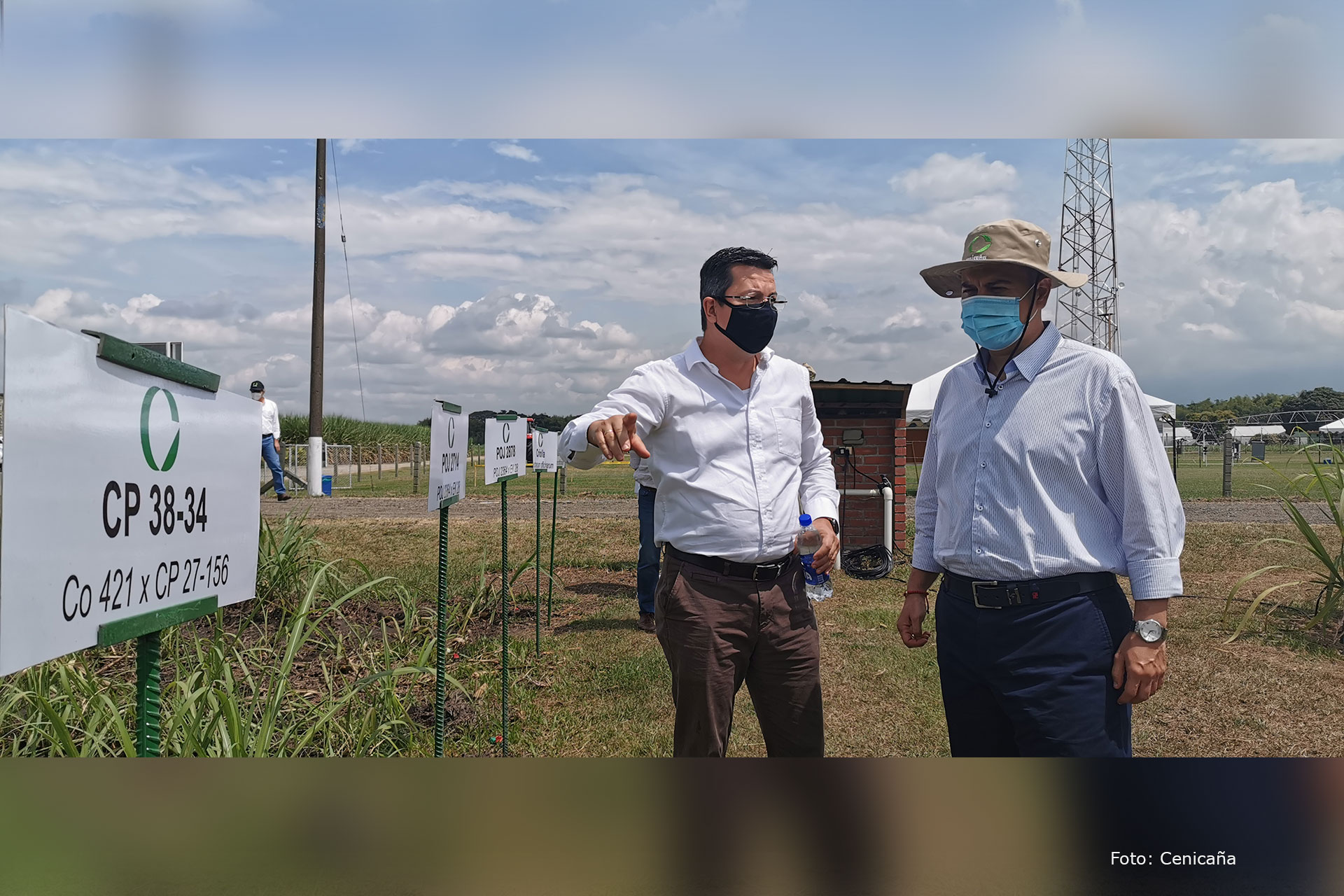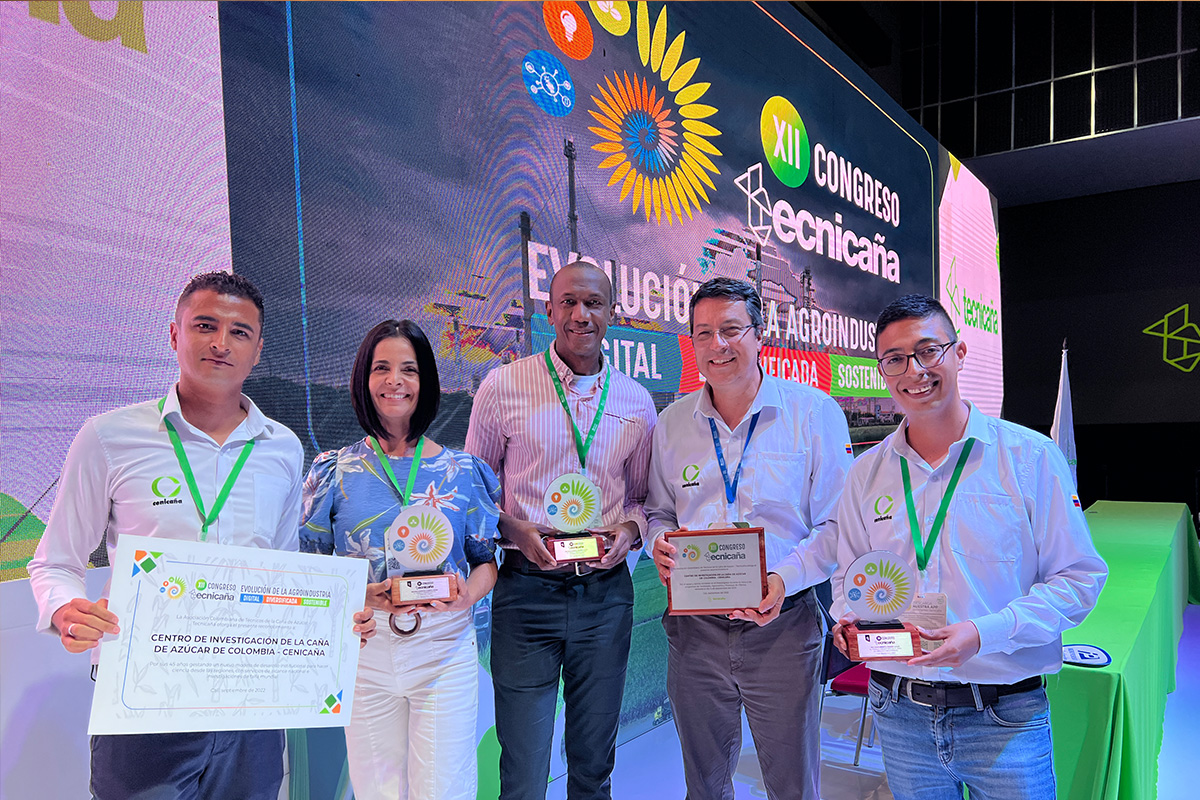A team from the Directorate of Agricultural and Forestry Chains of the Ministry of Agriculture and Rural Development visited the Cenicaña experimental station to learn about projects and initiatives around sustainability, agriculture 4.0 and diversification.
The Ministry of Agriculture and Rural Development and the Colombian sugarcane agribusiness exchanged experiences and knowledge to identify joint work opportunities that benefit the community, the region and the productive sector.
For this purpose, a team from the Directorate of Agricultural and Forestry Chains of Minagriculture visited the Cenicaña experimental station, located in the town of San Antonio de los Caballeros, in Florida, Valle del Cauca, to take a tour of different lines of research with which seeks to contribute to a more sustainable management of the crop, to expand the diversification of agribusiness and to promote agriculture 4.0
In the varietal aspect, results were shared such as the construction of the first monoploid genome of a Colombian sugarcane hybrid (CC 01-1940), which will be key in the future for the development and selection of new varieties of sugarcane with greater precision. and speed. The contributions of Cenicaña to the panelero sector were also socialized, especially through the development of varieties, with the purpose of continuing to strengthen these cooperative alliances through Agrosavia.
From a technological point of view, during the tour it was possible to present the advances of the sector in the implementation of different communication solutions, networks and technologies developed and implemented by Cenicaña. In this sense, emphasis was placed on the advantages of the IoT Network that allows various sensors and actuators to be connected to the internet that help the user to have a better view of their processes, and thus make decisions in a timely and effective manner.
In the line of sustainability, the applications of this type of technology in hydrological monitoring processes were presented, such as the one that Cenicaña carries out in basins intervened by the Water for Life and Sustainability Fund with the support of river user associations ; The progress of the Caña Biodiversa project in its purpose of establishing and restoring strips of riparian vegetation to strengthen the ecosystem environment of the Cauca river valley was also shared, and the results of the calculation of the agribusiness carbon footprint were shared.
Finally, regarding the diversification of the sector, Cenicaña emphasized research to develop alternatives that contribute to reducing greenhouse gas emissions, such as the potential use of agricultural residues from sugarcane harvest as a substitute for coal, and the use of ethanol in diesel engines, which could eventually be used in agricultural machinery and cane transportation infrastructure.
At the end of the meeting, Camilo Santos, director of Agricultural and Forestry Chains of Minagricultura, highlighted: “The sugarcane chain is absolutely strategic for the Government not only as a crop, but also in that forward line that is generated in transformation processes. In this research center and in the entire process that they have built since the seventies there is a very important learning curve in knowledge transfer to sugarcane producers and in all the research advances that we know today: soil, climate, management of the cultivation, water funds and agriculture 4.0, which is where the pandemic put us to look ”.
For her part, Claudia Calero, president of Asocaña, described the meeting as very positive because it was “an opportunity to show the Ministry how we work in the sugarcane agribusiness and how the research center plays a fundamental role in the sustainable development of our agribusiness and the region. Now, we hope that public-private alliances can be generated either for agribusiness or that they generate shared value in the regions ”.
Finally, Freddy Garcés, CEO of Cenicaña highlighted the opportunity to show other productive sectors, through the National Government, the importance of investing in science and technology. “More than 40 years ago the sugarcane sector, with a vision of the future, invested in research and generation of knowledge to be competitive and face the challenges of the future, challenges that are common for other sectors such as high climatic variability. The visit we receive today is an excellent opportunity for our model to serve as a benchmark for other productive sectors, "he said.










